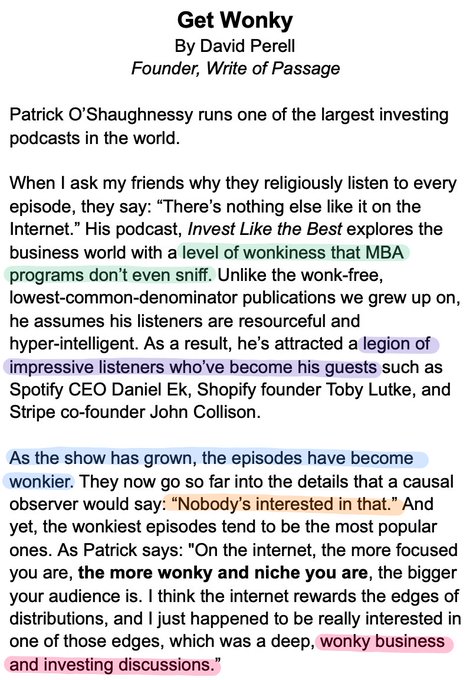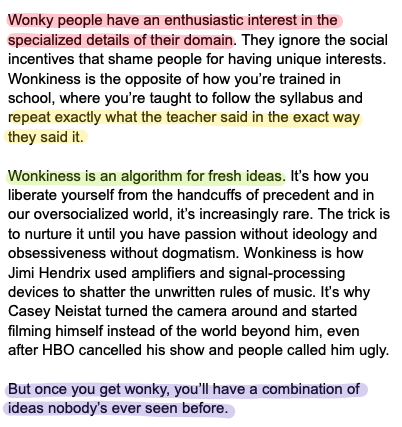
Creators should have a visual trademark.
With the world becoming so visual, a distinct style is one of the easiest ways to stand out.
Here’s a thread of people to inspire you.
1. Wes Anderson: Pastel colors with vintage shades that look like they should be a poster.



With the world becoming so visual, a distinct style is one of the easiest ways to stand out.
Here’s a thread of people to inspire you.
1. Wes Anderson: Pastel colors with vintage shades that look like they should be a poster.
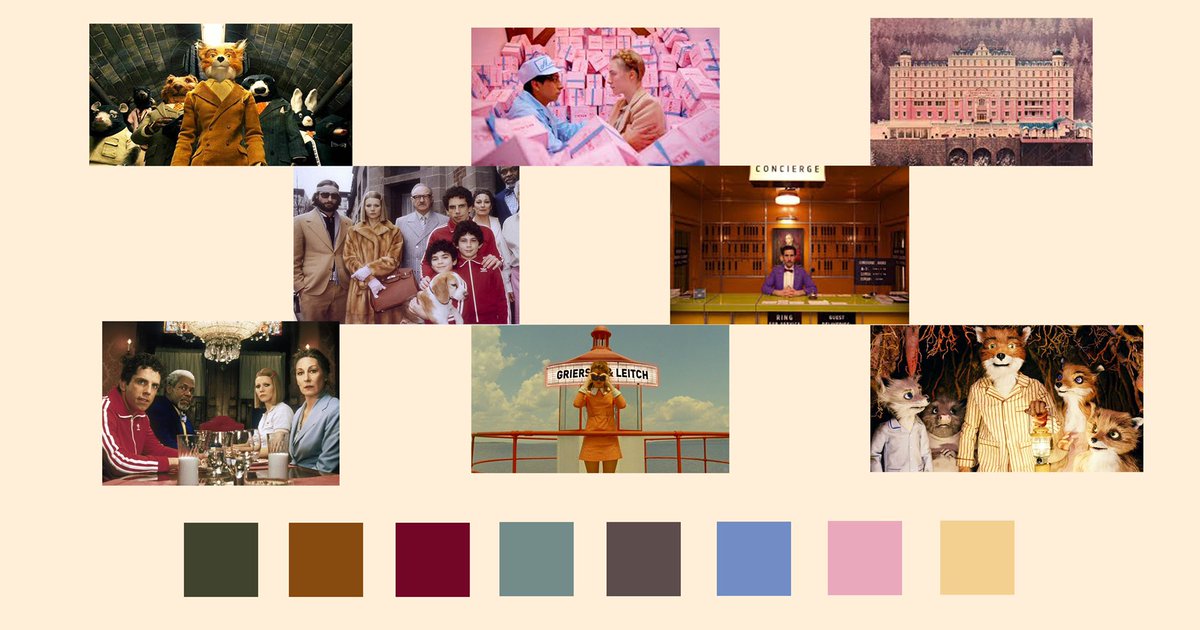
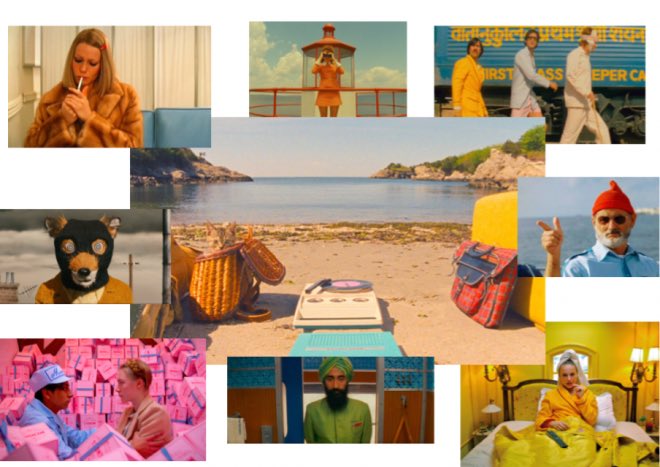

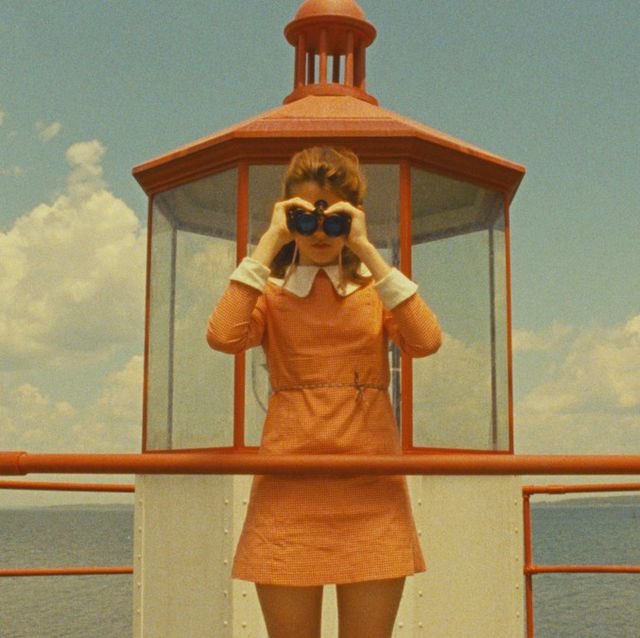
2. Casey Neistat
With close up shots, messy handwriting, simple fonts, time lapses, drone shots, and symmetrical shots that are inspired by Wes Anderson, @Casey uses aesthetics to invite viewers into his life and make them feel like a friend.



With close up shots, messy handwriting, simple fonts, time lapses, drone shots, and symmetrical shots that are inspired by Wes Anderson, @Casey uses aesthetics to invite viewers into his life and make them feel like a friend.
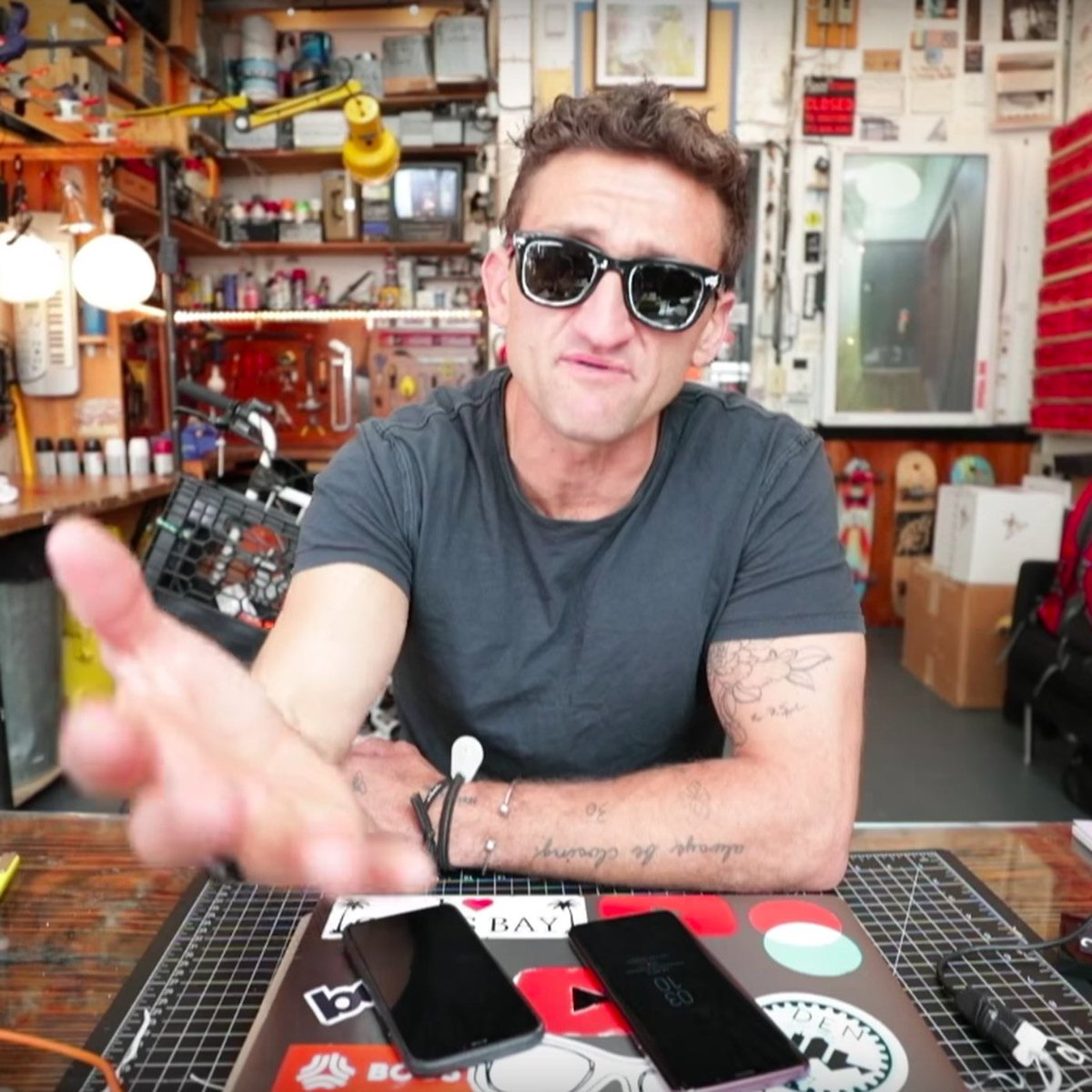


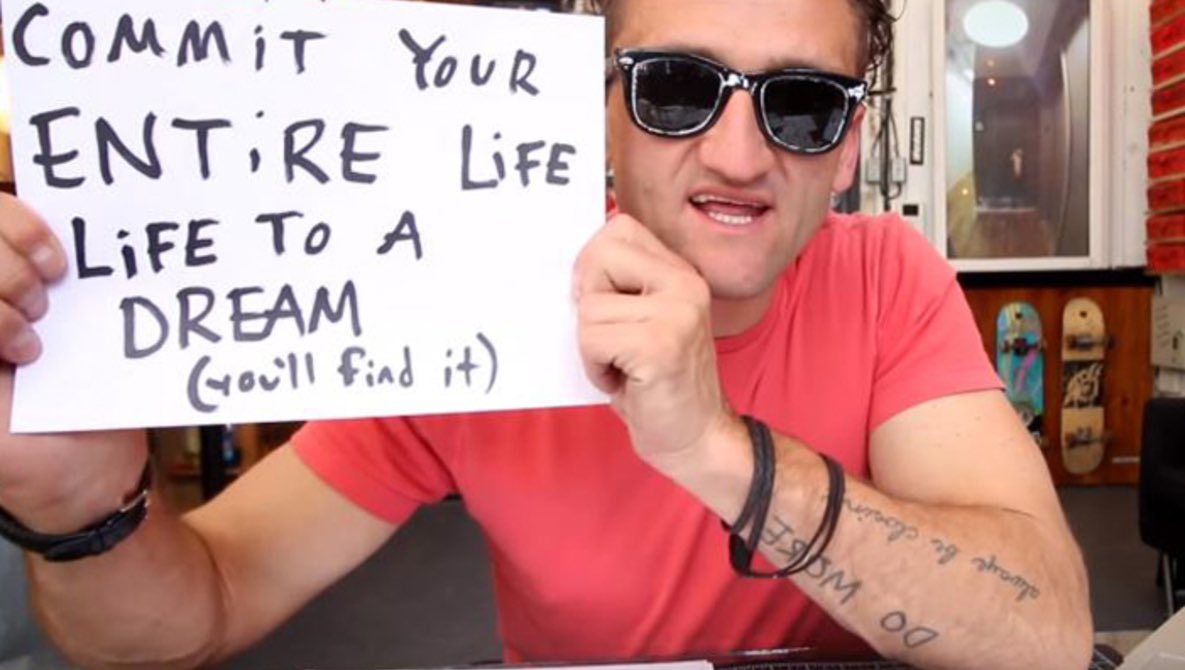
3. Tim Urban
I’m drawn to creatives who give their audiences two opposing emotions. @waitbutwhy pairs the intensity of learning with the playfulness of humor.
His stick-figure drawings are instantly recognizable because they’re so distinct.



I’m drawn to creatives who give their audiences two opposing emotions. @waitbutwhy pairs the intensity of learning with the playfulness of humor.
His stick-figure drawings are instantly recognizable because they’re so distinct.
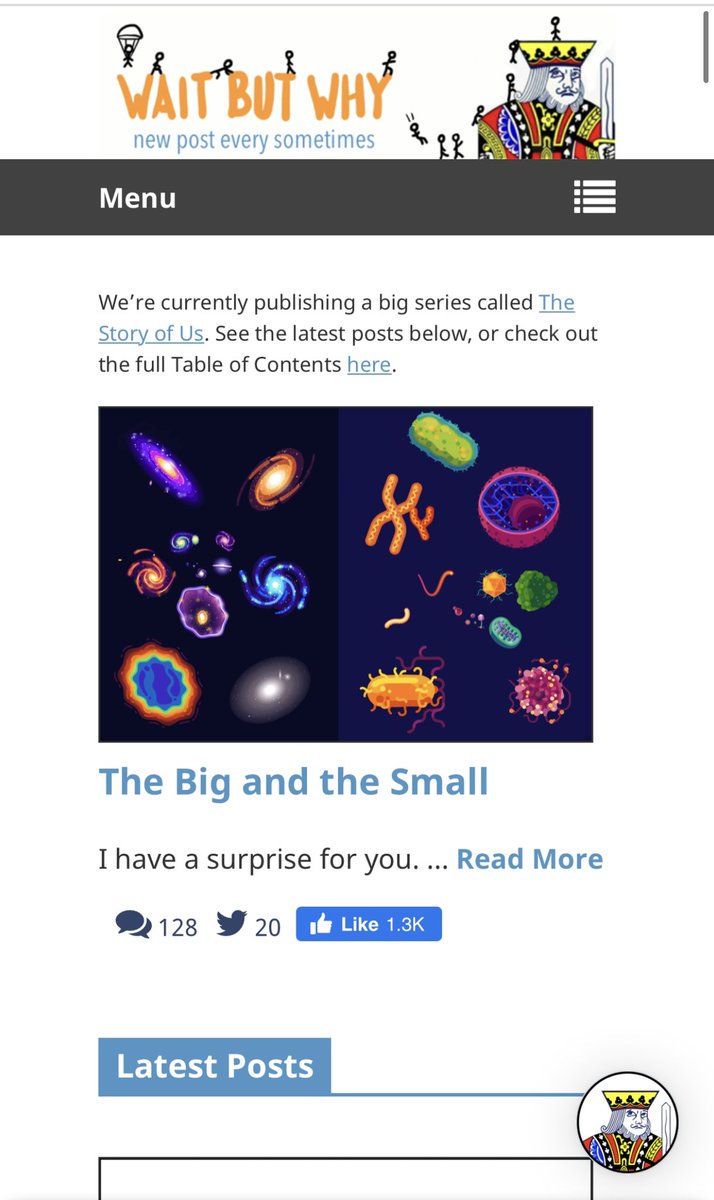
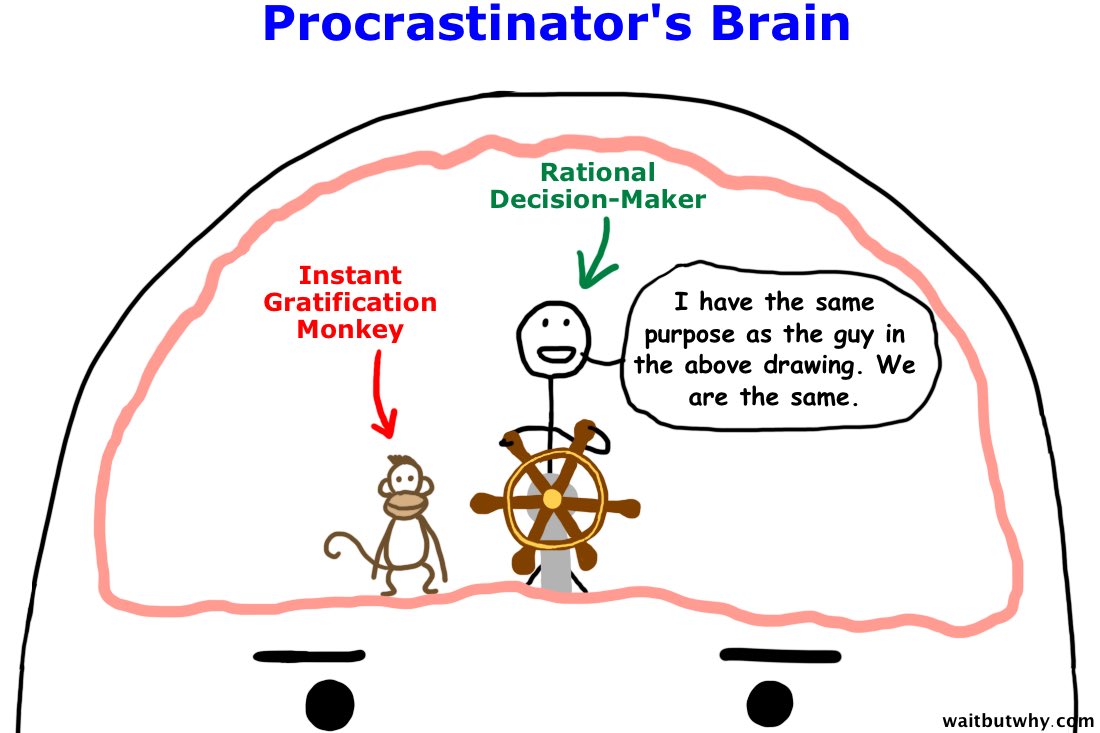
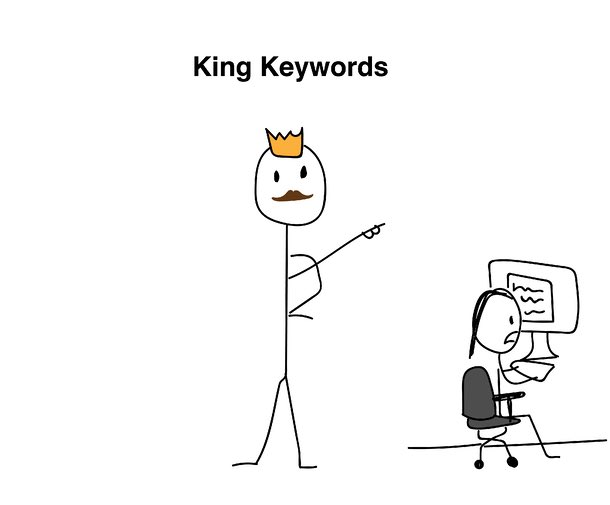
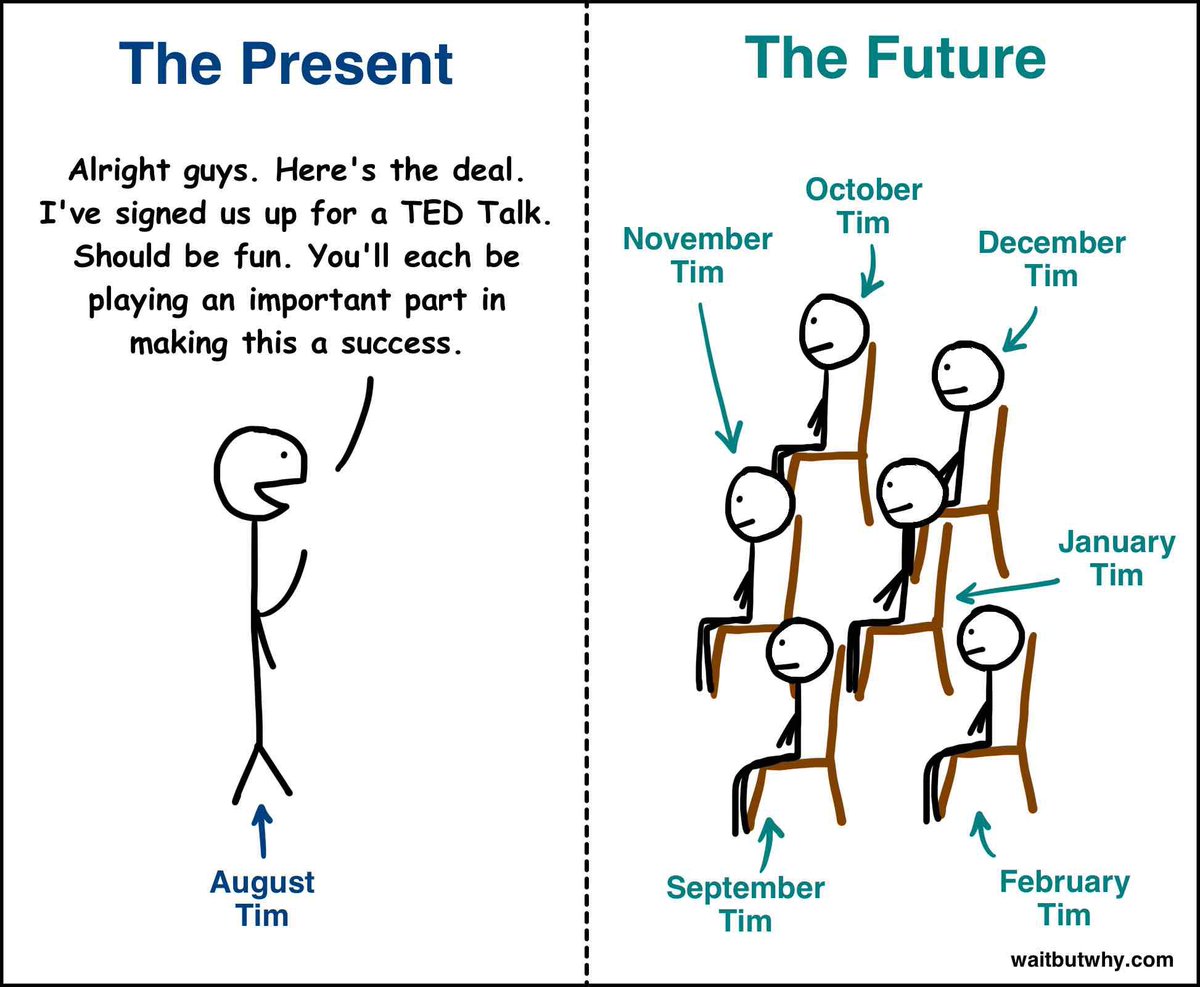
4. Shantell Martin
She’s an artist but the distinctiveness of her aesthetic should inspire us all.
On the Internet, you have to assume your ideas will be remixed. Thus, you “copyright your work” not with government-issues trademarks but with a style as unique as this.



She’s an artist but the distinctiveness of her aesthetic should inspire us all.
On the Internet, you have to assume your ideas will be remixed. Thus, you “copyright your work” not with government-issues trademarks but with a style as unique as this.
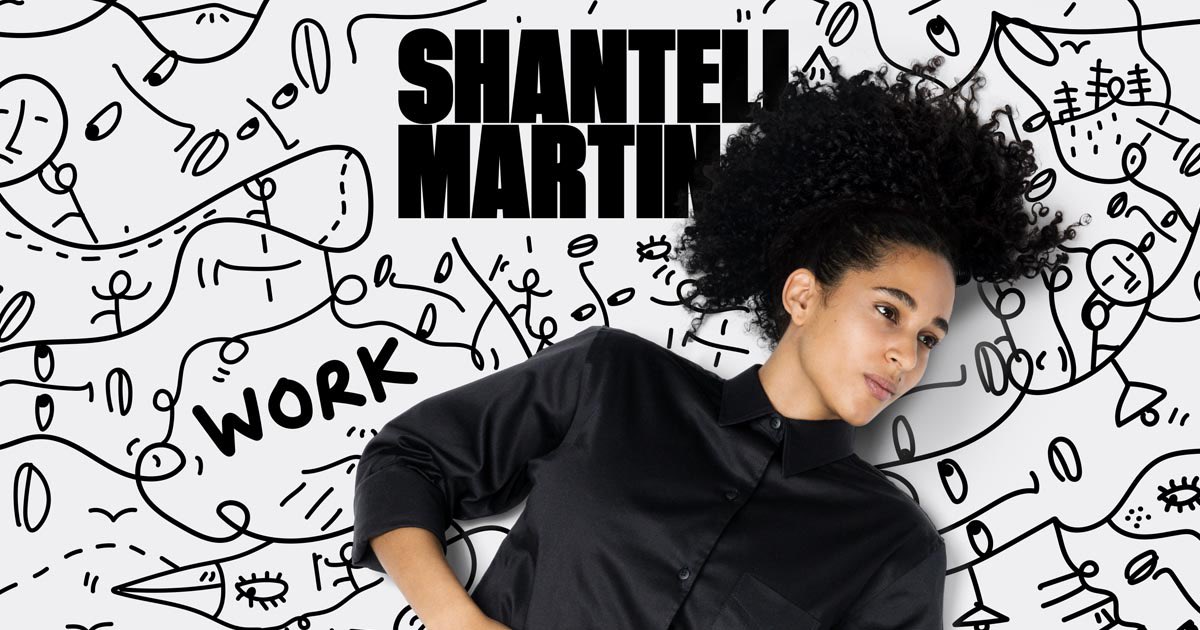
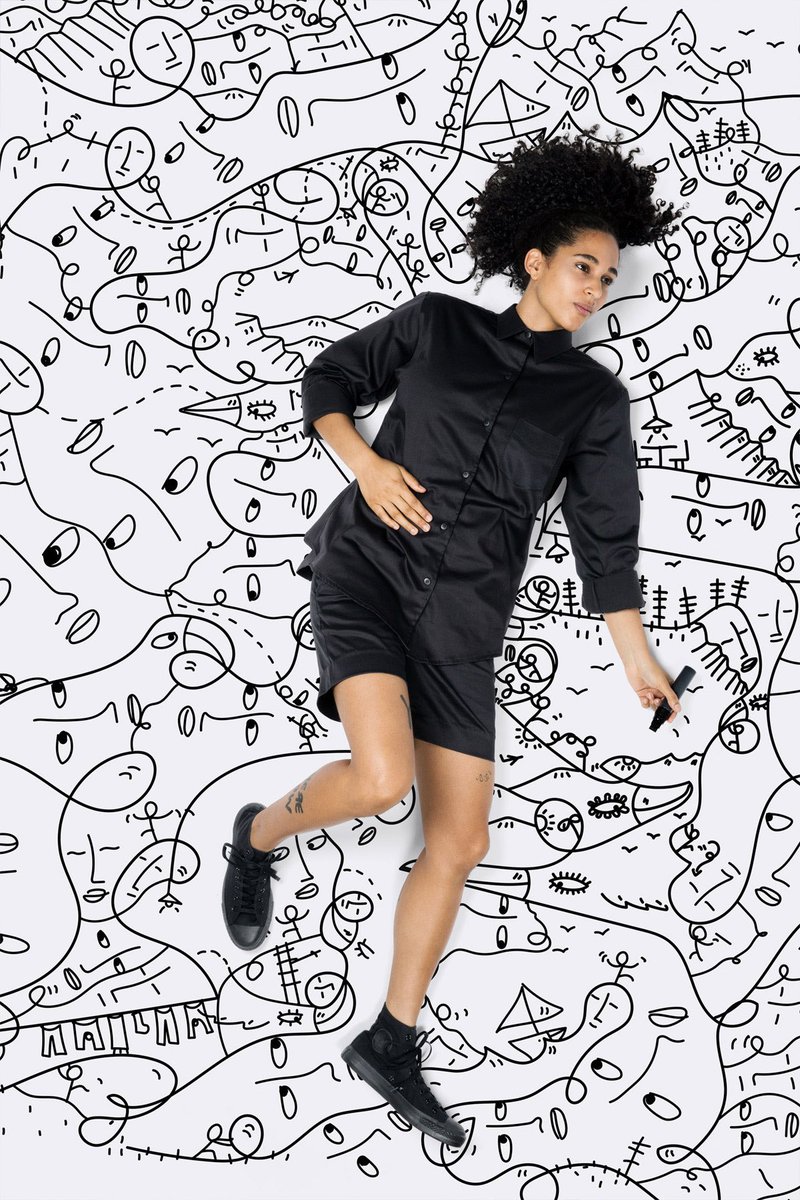
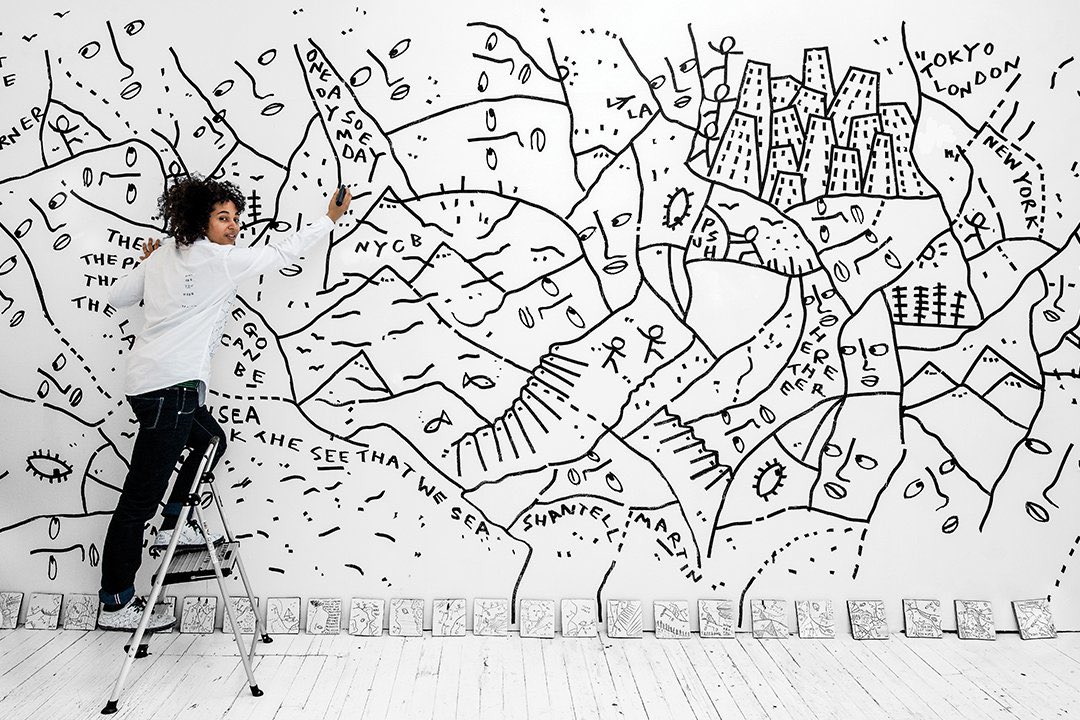
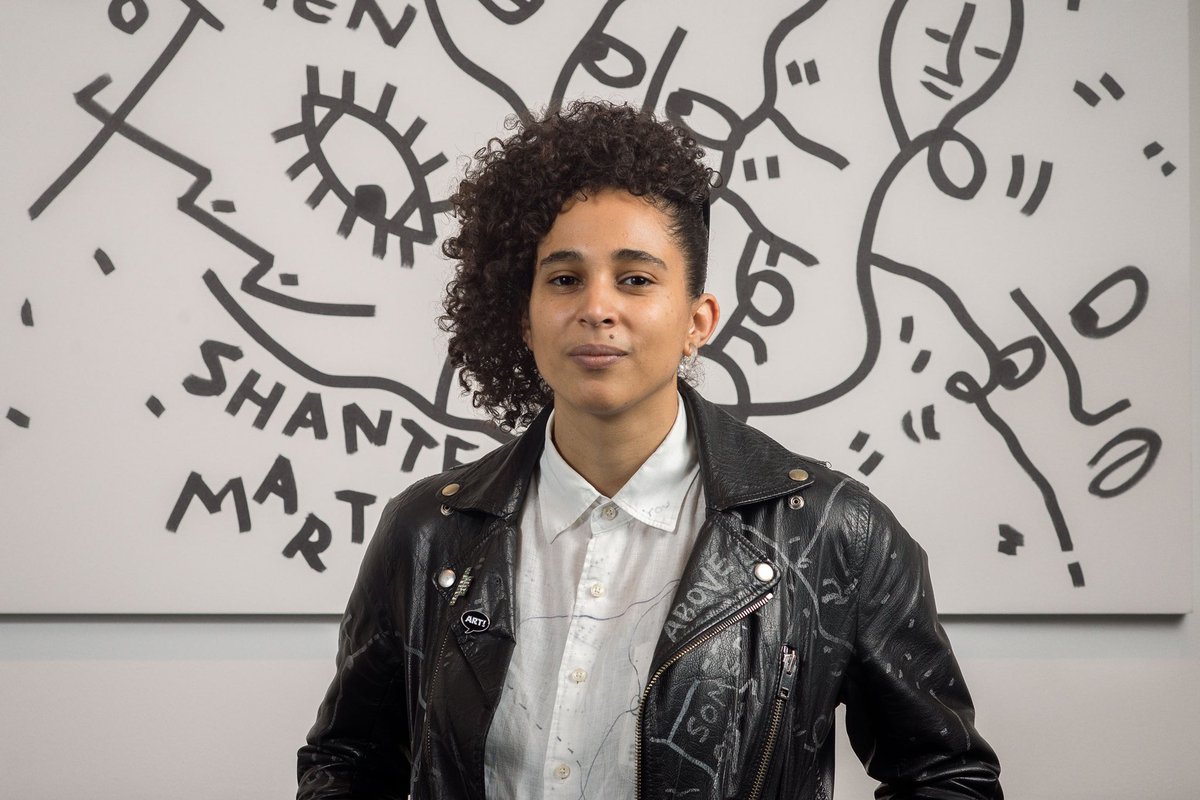
5. Meagan Cignoli
In your quest to stand out, being unique is as important as being good at what you do. @MeaganCignoli’s animations vibrate with color and playful music that makes you smile, which makes them instantly recognizable.
In your quest to stand out, being unique is as important as being good at what you do. @MeaganCignoli’s animations vibrate with color and playful music that makes you smile, which makes them instantly recognizable.
6. Wear something unique
Distinctiveness doesn’t need to be difficult. Sometimes, it’s as easy as a signature outfit like Lex Friedman’s black suit, Casey Neistat’s glasses, or Seth Godin’s yellow glasses.
The important thing is to commit to something distinct.


Distinctiveness doesn’t need to be difficult. Sometimes, it’s as easy as a signature outfit like Lex Friedman’s black suit, Casey Neistat’s glasses, or Seth Godin’s yellow glasses.
The important thing is to commit to something distinct.
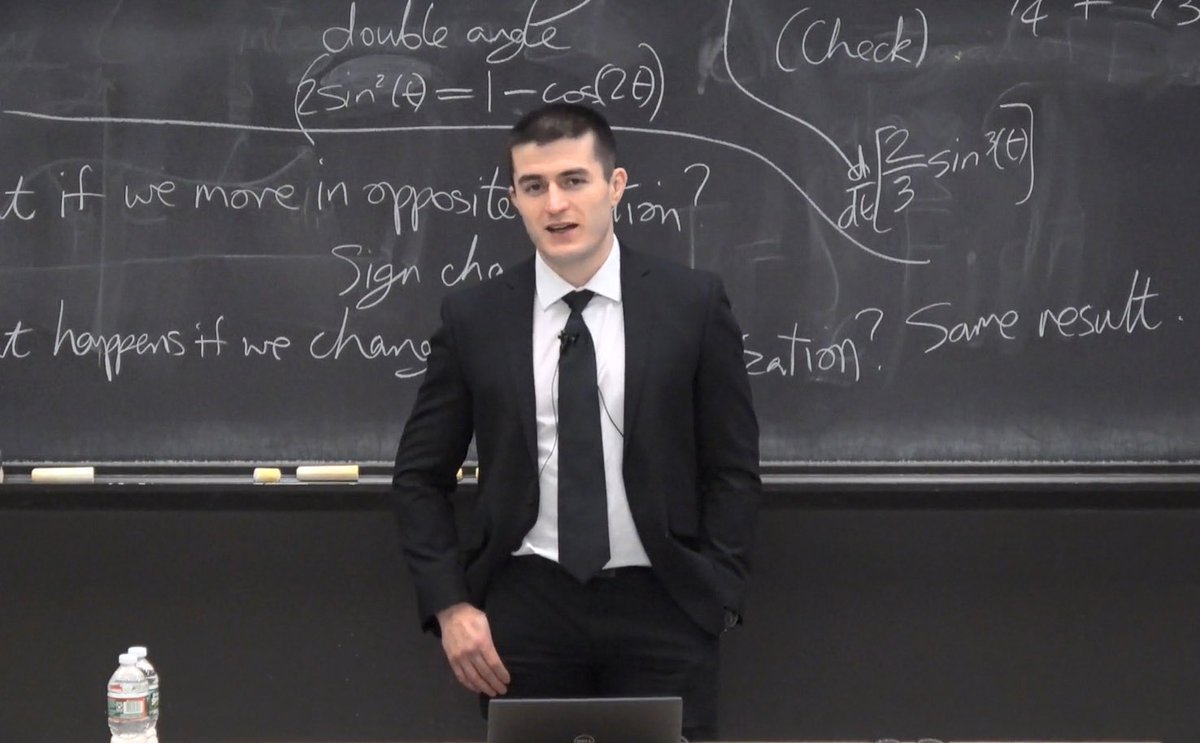
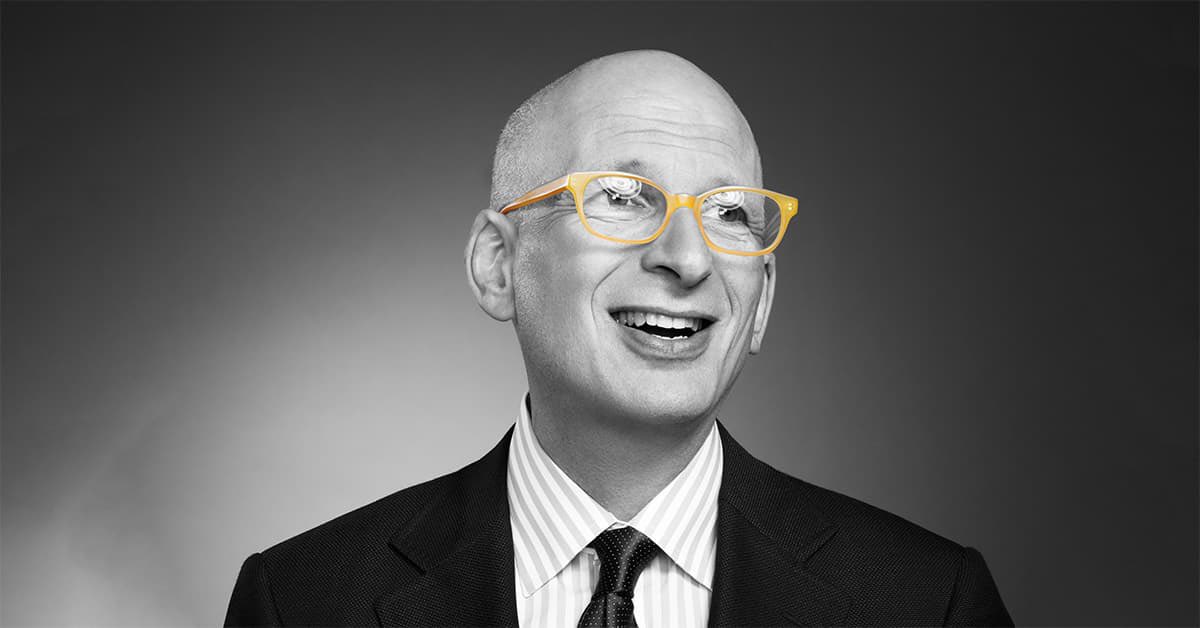
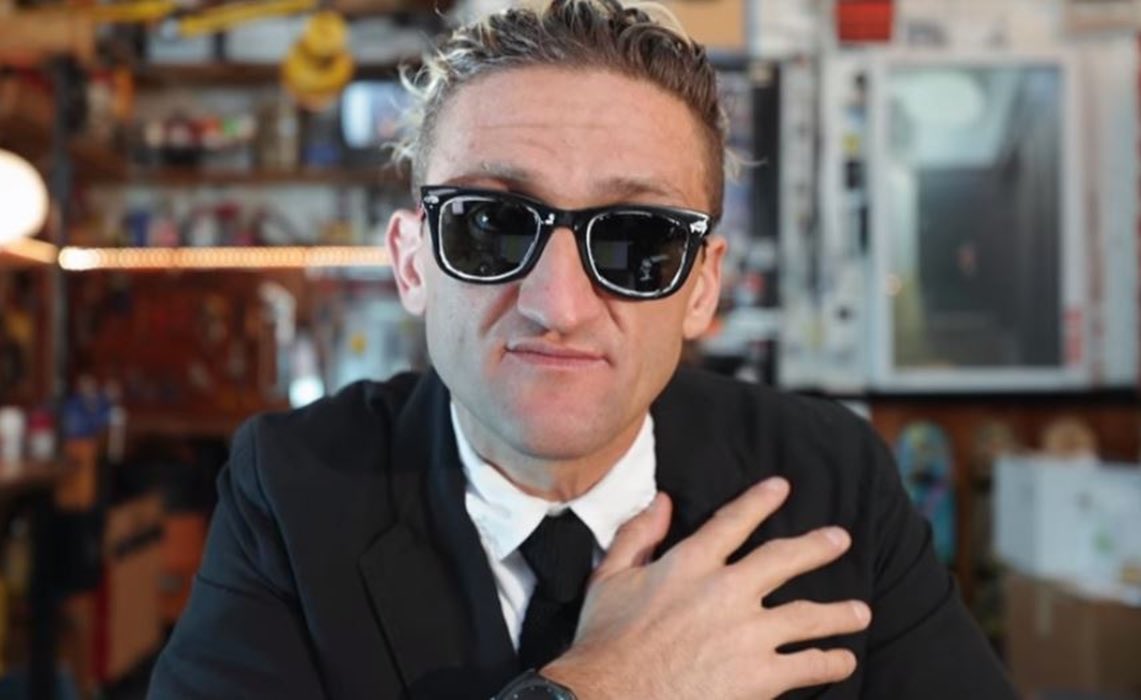
7. Keith Haring
How much of his cultural influence results from his unique style?
In a world where art is becoming more niche, everybody can at least say “I recognize that look” whenever they see one of his drawings or something inspired by him.



How much of his cultural influence results from his unique style?
In a world where art is becoming more niche, everybody can at least say “I recognize that look” whenever they see one of his drawings or something inspired by him.
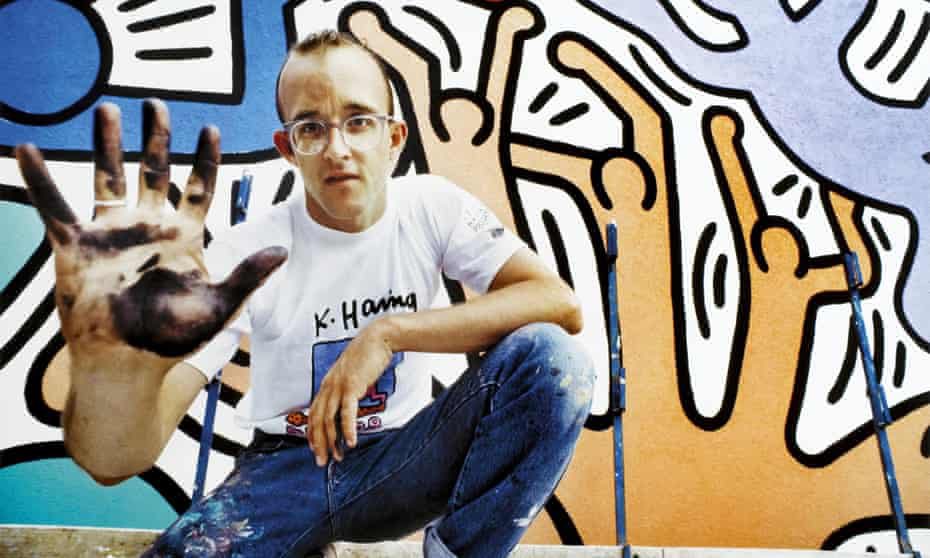
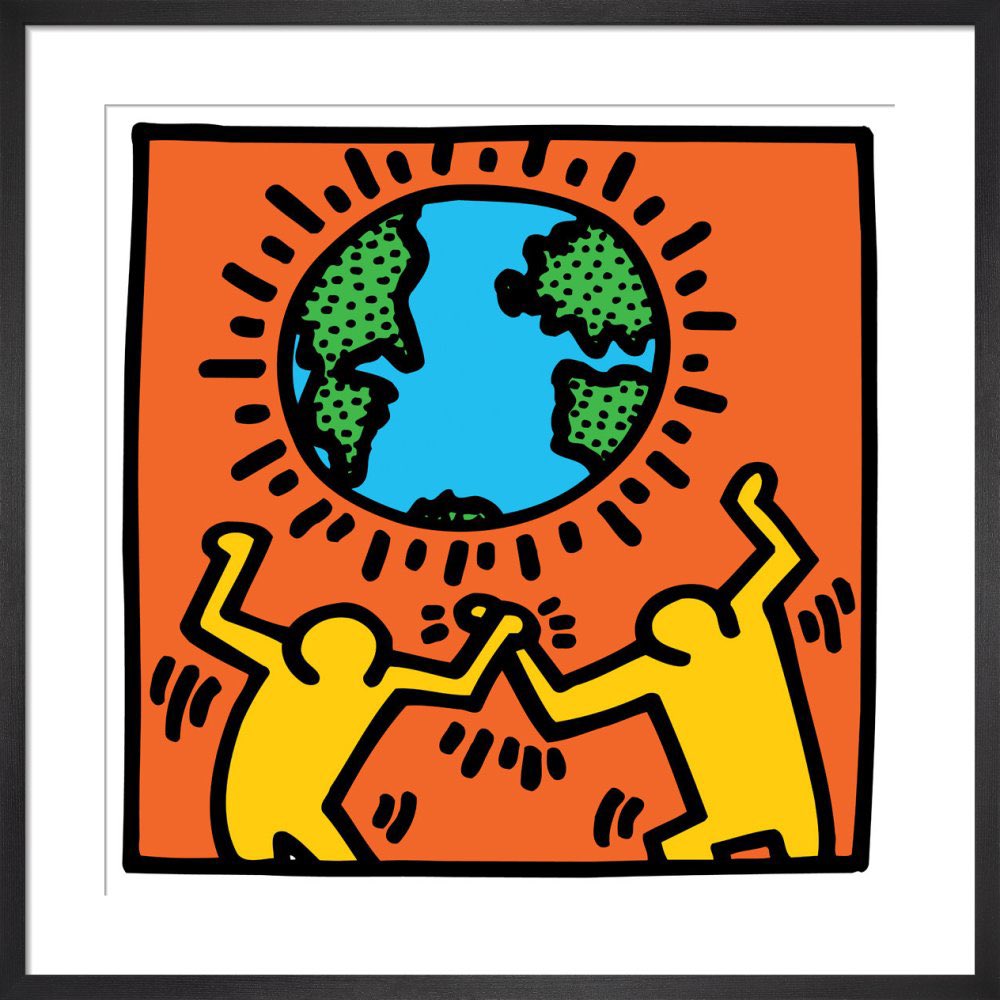
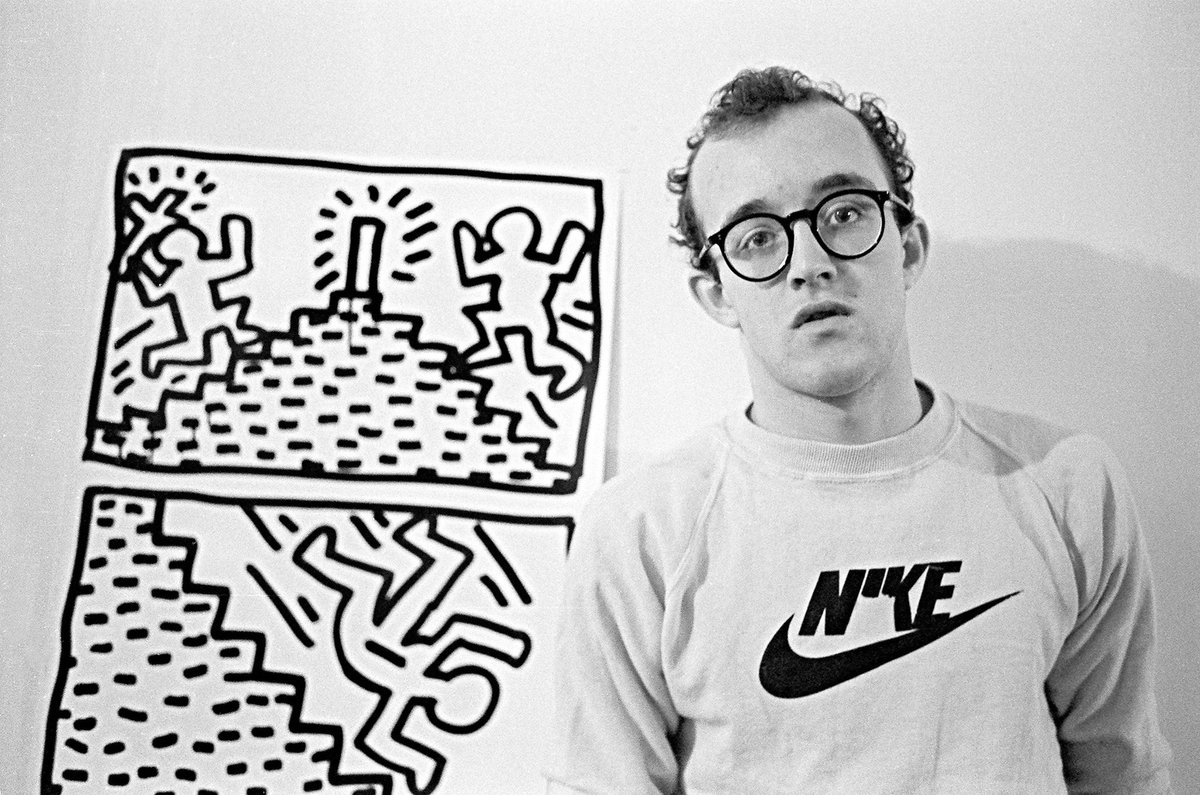
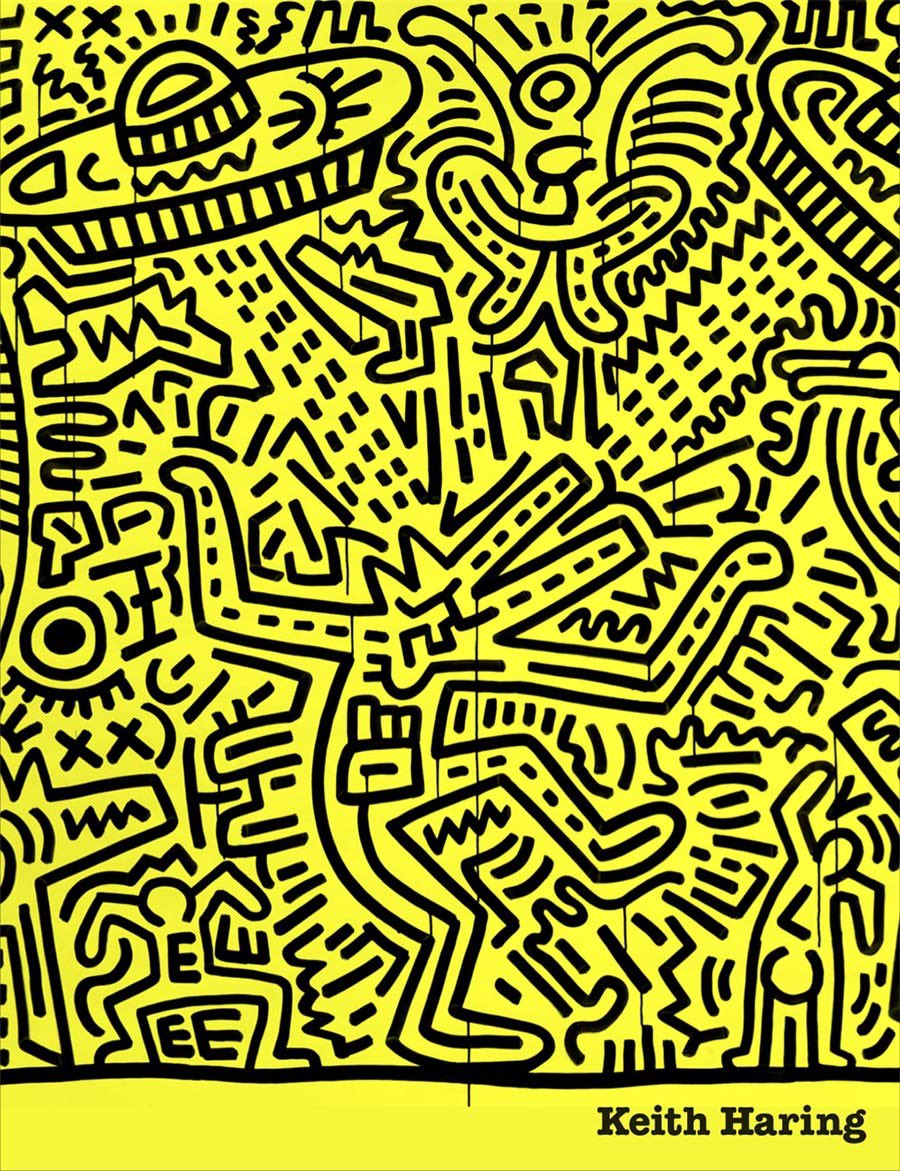
8. Meagan Morrison
I recognize her bright colors, long brush strokes, sketch-like playfulness, and travel-inspired scenes whenever I see her drawings in magazines or floating around the Internet.
Meagan does a good job of matching her personal fashion to her paintings too.



I recognize her bright colors, long brush strokes, sketch-like playfulness, and travel-inspired scenes whenever I see her drawings in magazines or floating around the Internet.
Meagan does a good job of matching her personal fashion to her paintings too.



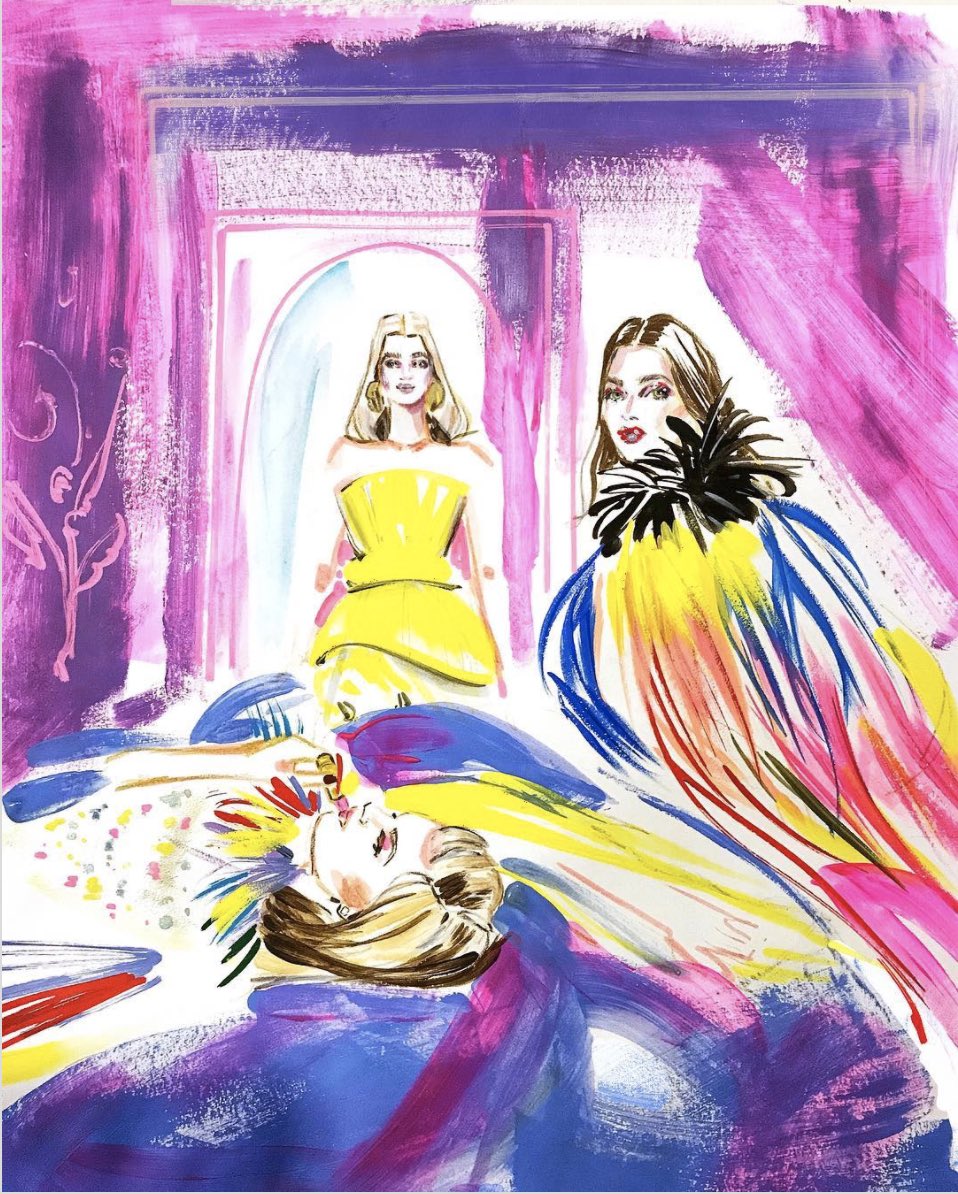
9. Brian Grazer
The co-chairman of Imagine Entertainment, and the man behind movies like 8 Mile. He’s famous for his hair and credits part of his success to it. People describe him as “that Hollywood guy with the hair that stands straight up.”
Here’s the backstory.



The co-chairman of Imagine Entertainment, and the man behind movies like 8 Mile. He’s famous for his hair and credits part of his success to it. People describe him as “that Hollywood guy with the hair that stands straight up.”
Here’s the backstory.
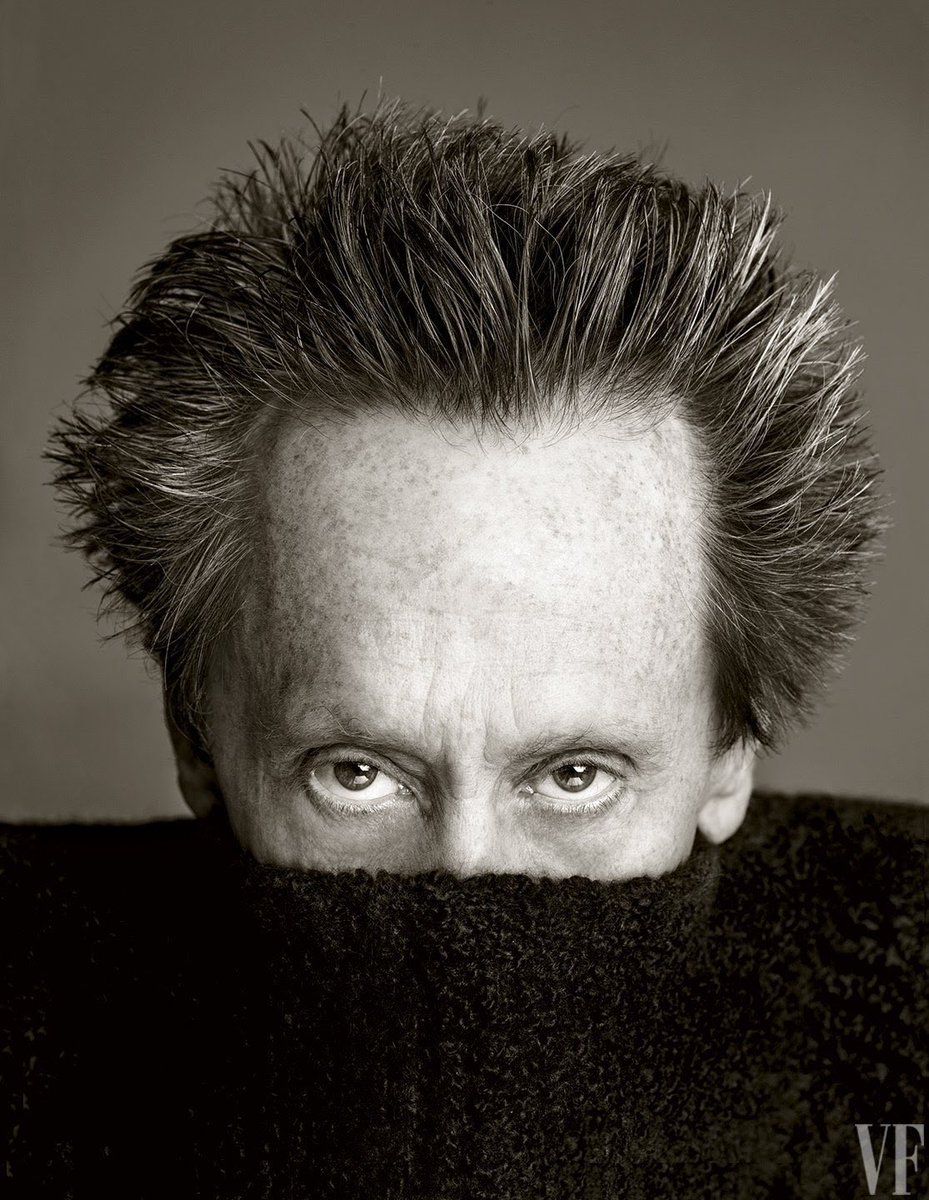
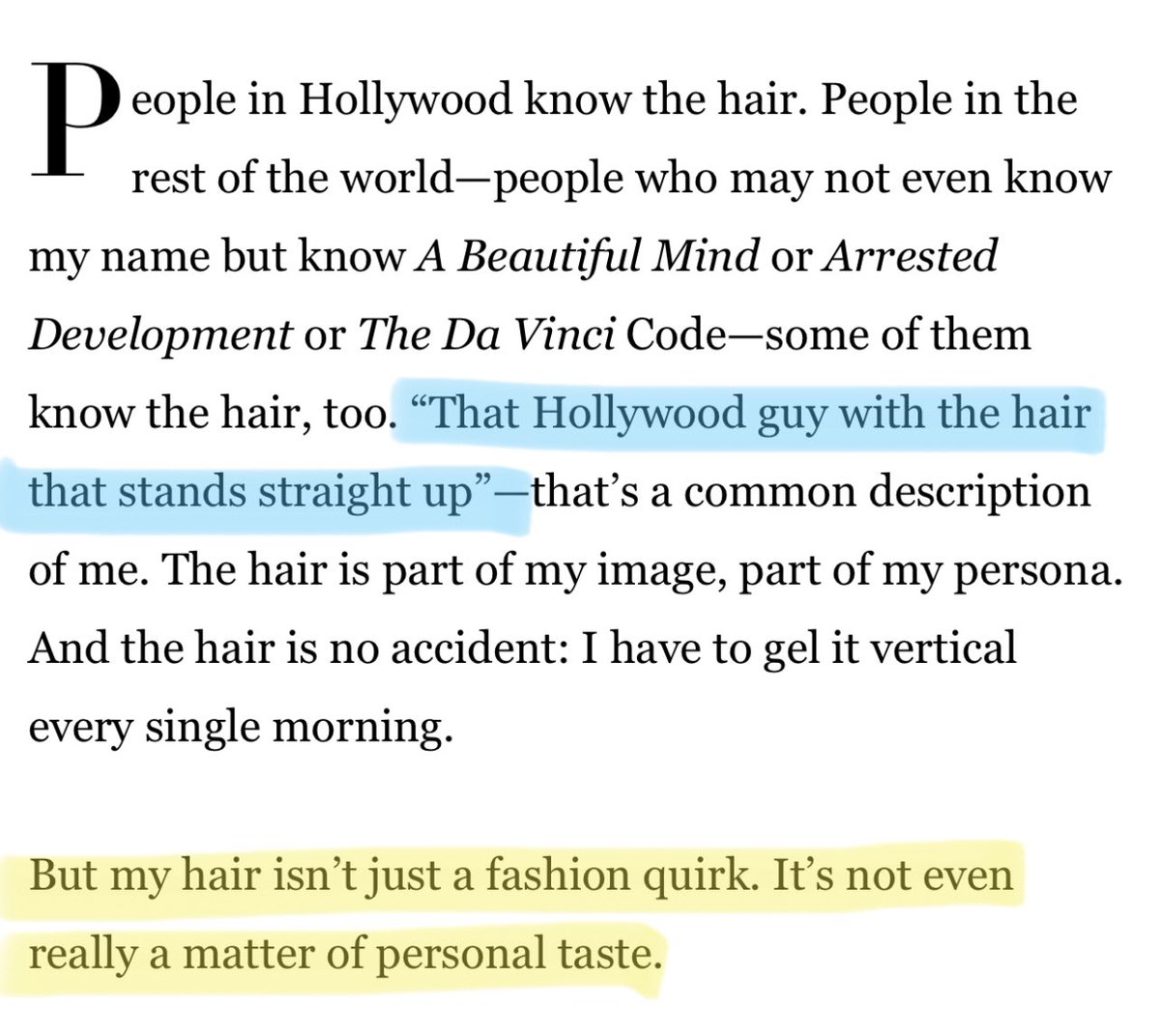
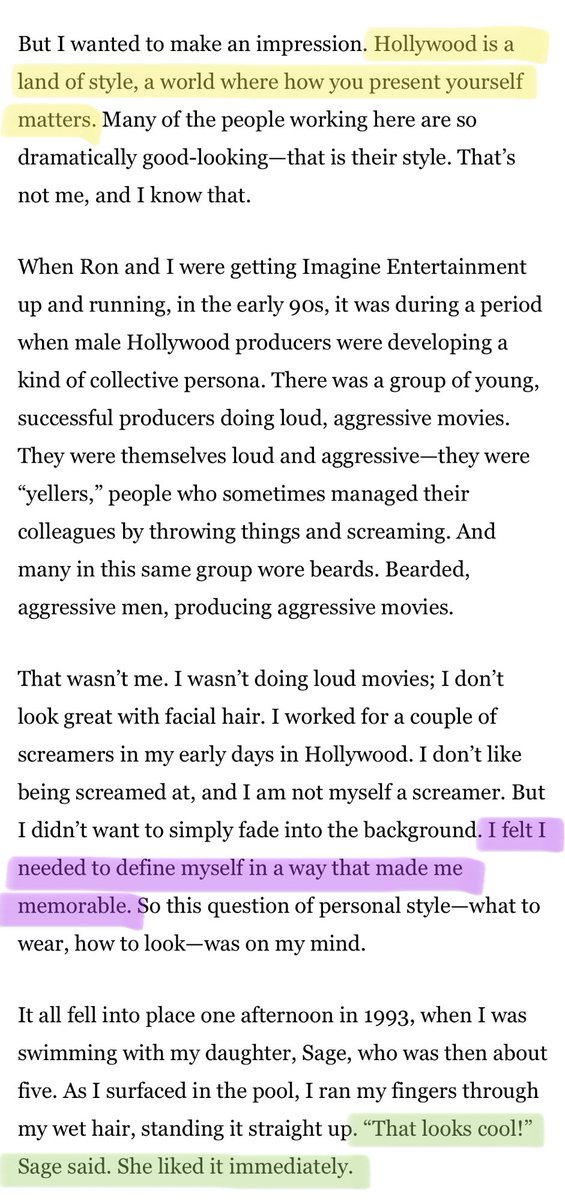
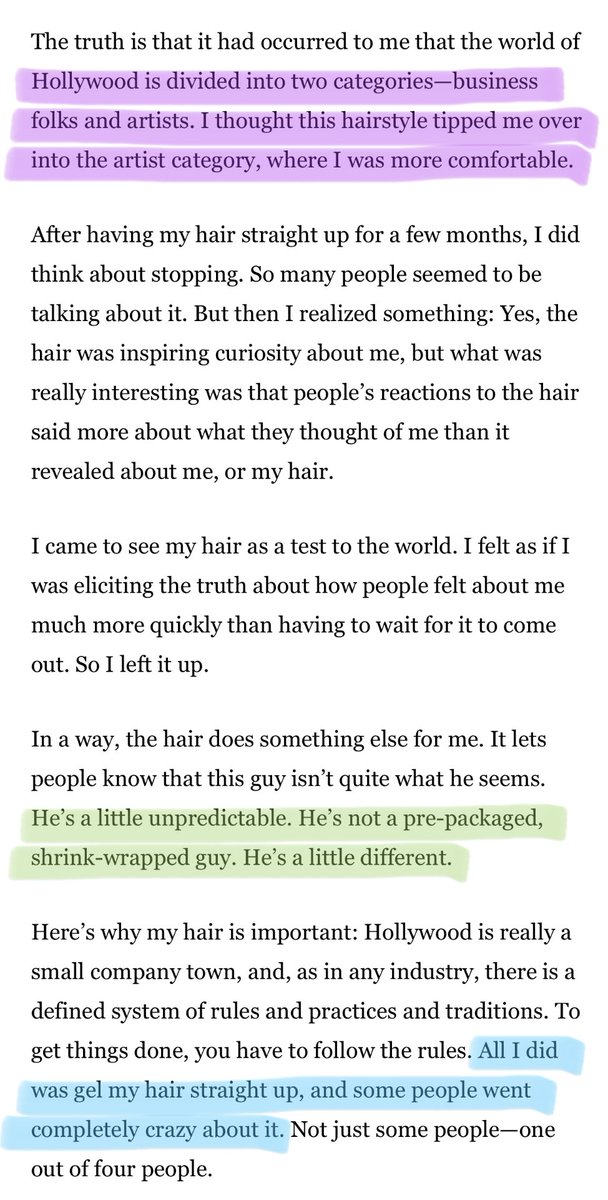
• • •
Missing some Tweet in this thread? You can try to
force a refresh

